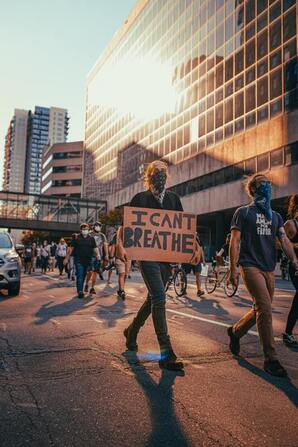|
It is interesting to reflect on the leadership conversations I had with clients back in December of 2019 or January of 2020. The year-end goals, professional development focus areas, team building initiatives, and strategies for the future have all shifted. For those who have stayed on track with your original plans are you sure that is still right? I have very few answers (and be wary of any consultant or coach who says they do), but I believe I have the right question, which is: “Are we still having the most important conversation?” The pandemic has surfaced fear, changes in lifestyle, political polarities, and a brand-new work environment. Virtual work can be a dream come true, or another person’s version of hell. Regardless of preferences, everyone is dealing with some type of COVID-responsible harm. For some, that damage means loss that is tragic and devastating; for others, the injury is unsettling, inconvenient, or scary. Then there is the pandemic of racism that has always caused our society to be sick. However, the loss of George Floyd is highlighting just how disease-stricken we continue to be. We must take steps to name, address, dismantle, change, reconstruct, and heal.  These two pandemics will not be ignored! Leaders, please hit the pause button on all the conversations you believe were most important five months ago and reassess what healthy dialogue should look like now. What needs to be named in your organization? What needs to be eradicated from the workforce? What needs to be addressed in your own form of leadership? Ask yourself, are these conversations I’m still having the most important?
These are individual questions, but they also require a collective response. It is everyone’s responsibility to do this work, but it cannot be done alone. The time is now to perceive and receive what must be seen and heard. Humor can be the best medicine! I have seen the memes that joke about people returning 2020 and getting their money back, or when time travel becomes available, always skip 2020. I am beginning to wonder, though, if we do not start talking about the most important things, the dynamics of 2020 may new leave. What conversations do you need to be in now? Photo by Etienne Boulanger on Unsplash Photo by Josh Hild on Unsplash Do you ever feel wordless? I had a client recently say she felt like she had a conversation bubble floating over her head like a word cloud. She could not string the elements together to form a complete sentence. Labels, names, adverbs, adjectives, nouns, verbs – all dangling in space waiting for some resemblance of order, narrative or expression. It’s a head-scratcher to have so many thousands of choices available in the spoken language and not be able to find a few to summarize your thoughts, feelings or reactions. It can be an odd sensation. The current headlines alone can certainly cause a lot of wordlessness:
Before we all resort to cussing it out, I have a suggestion. We may need to express that we feel speechless. From a physical perspective, we are never truly without words. Unless there is a physical condition – the vocal cords still work. We can speak, but the emotion can be too strong, leaving us unable to find the right declaration to fit the context. These moments of vulnerability invite your leadership. Have you ever been in a meeting and said, “I am without words, and I think we need to all sit in silence for a bit and reflect?”
When was the last time you refrained from problem admiration to admit you did not know how to get past the present obstacle because your emotion was clogging your thinking? Do you permit yourself to slow the constant chatter of achieveachieveachieveachieve hurryhurryhurry talktalktalktalk complaincomplaincomplain directdirectdirectdirect or answeransweransweranswer? Leadership is most often expressed in words, but it can also be felt in silence. There is a time for language and a time to be quiet – good leaders maximize both opportunities and do not let the weird wordless feeling go unexplored. When those moments hit - Let them be. Choose silence and see what emerges. There is an invitation in the space that language cannot fill – we do not always realize we need it, but once there, the body will take some big deep breaths. Where are you wordless and how do you want to manage that? Photos by Tim Mossholder on Unsplash |
Carrie Arnold, PhD, MCC, BCCIn no particular order: Author | Dog mom | Speaker | Reader | Mom to human offspring | Wife | Lover of Learning | Leadership coach & consultant, The Willow Group | Faculty for Evidence-Based Coaching at Fielding Graduate University
�
Categories
All
|
The Willow GroupCarrie Arnold, PhD, MCC
|
Silenced and Sidelined: How Women Leaders Find Their Voices and Break Barriers
|
|
© 2020 The Willow Group, LLC






